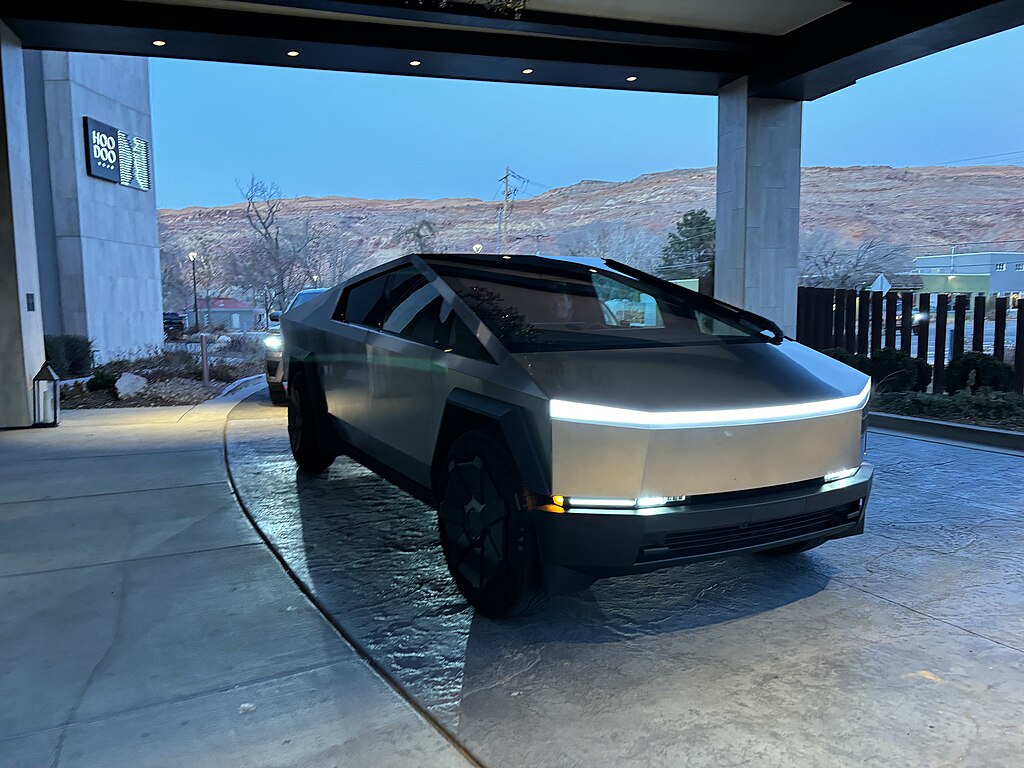Russian warlord Ramzan Kadyrov criticized Elon Musk after Tesla remotely deactivated his Cybertruck, which Kadyrov claims was a personal gift. Musk's actions came after concerns were raised about the vehicle's use in violation of international sanctions against Russia.
Elon Musk Faces Backlash from Russian Warlord Ramzan Kadyrov Over Tesla Cybertruck Deactivation
In recent times, Elon Musk has seemed constantly embroiled in controversy. Tesla's CEO faces criticism from international figures, including Brazilian Supreme Court Judge Alexandre de Moraes and Russian warlord Ramzan Kadyrov, who have expressed their anger at Musk for separate reasons. This is in addition to his frequent criticism at home for his polarizing views. The weight of these controversies is a testament to Musk's public image.
Kadyrov, the de facto ruler of the Chechen Republic in Russia, is notably enraged by Tesla's remote deactivation of his Cybertruck. According to Wccftech, it was reported that Kadyrov had acquired the Cybertruck last month and installed a machine gun on it, which caused concern because Russia is still subject to severe international sanctions.
The warlord asserts that the Cybertruck was a personal gift from Musk and has publicly expressed gratitude to the CEO. He has also invited Musk to visit Grozny, the capital of the Chechen Republic. Nevertheless, it is more probable that the electric vehicle was acquired illegally, which prompted Tesla to turn it off remotely.
Kadyrov responded by critiquing Musk's actions: "This is not a kind act." From his heart, Musk creates costly gifts that he then remotely deactivates.
Elon Musk Sparks Conflict in Brazil, Defying Judge's Order to Block Access to X Platform
In the interim, Musk is confronted with a distinct conflict in Brazil. Musk went so far as to ridicule the judge's orders after refusing to comply with Judge de Moraes' demands to block access to X (formerly Twitter) in the country. In retaliation, de Moraes implemented a nationwide prohibition on the social media platform and a daily fine of 50,000 Reais ($8,900) for users who attempted to circumvent the ban using VPNs.
In his decision, de Moraes stated, "Elon Musk showed his total disrespect for Brazilian sovereignty and, in particular, for the judiciary, setting himself up as a true supranational entity and immune to the laws of each country."
Musk's actions continue to incite controversy on numerous fronts, with tensions escalating domestically and internationally. The gravity of these tensions underscores the significance of Musk's controversies and their potential impact on global affairs.



 Nvidia Earnings Preview: AI Chip Demand, Data Center Growth and Blackwell Shipments in Focus
Nvidia Earnings Preview: AI Chip Demand, Data Center Growth and Blackwell Shipments in Focus  Anthropic Refuses Pentagon Request to Remove AI Safeguards Amid Defense Contract Dispute
Anthropic Refuses Pentagon Request to Remove AI Safeguards Amid Defense Contract Dispute  OpenAI Pentagon AI Contract Adds Safeguards Amid Anthropic Dispute
OpenAI Pentagon AI Contract Adds Safeguards Amid Anthropic Dispute  Amazon’s $50B OpenAI Investment Tied to AGI Milestone and IPO Plans
Amazon’s $50B OpenAI Investment Tied to AGI Milestone and IPO Plans  Snowflake Forecasts Strong Fiscal 2027 Revenue Growth as Enterprise AI Demand Surges
Snowflake Forecasts Strong Fiscal 2027 Revenue Growth as Enterprise AI Demand Surges  Netflix Stock Jumps 14% After Exiting Warner Bros Deal as Paramount Seals $110 Billion Acquisition
Netflix Stock Jumps 14% After Exiting Warner Bros Deal as Paramount Seals $110 Billion Acquisition  Trump Warns Iran as Gulf Conflict Disrupts Oil Markets and Global Trade
Trump Warns Iran as Gulf Conflict Disrupts Oil Markets and Global Trade  Flare, Xaman Roll Out One-Click DeFi Vault for XRP Yield via XRPL Wallets
Flare, Xaman Roll Out One-Click DeFi Vault for XRP Yield via XRPL Wallets  FAA Plans Flight Reductions at Chicago O’Hare as Airlines Ramp Up Summer Schedules
FAA Plans Flight Reductions at Chicago O’Hare as Airlines Ramp Up Summer Schedules  Hyundai Motor Group to Invest $6.26 Billion in AI Data Center, Robotics and Renewable Energy Projects in South Korea
Hyundai Motor Group to Invest $6.26 Billion in AI Data Center, Robotics and Renewable Energy Projects in South Korea  Microsoft Gaming Leadership Overhaul: Phil Spencer Retires, Asha Sharma Named New Xbox CEO
Microsoft Gaming Leadership Overhaul: Phil Spencer Retires, Asha Sharma Named New Xbox CEO  Coupang Reports Q4 Loss After Data Breach, Revenue Misses Estimates
Coupang Reports Q4 Loss After Data Breach, Revenue Misses Estimates  Synopsys Q2 Revenue Forecast Misses Expectations Amid China Export Curbs and AI Shift
Synopsys Q2 Revenue Forecast Misses Expectations Amid China Export Curbs and AI Shift  APEX Tech Acquisition Inc. Raises $111.97 Million in NYSE IPO Under Ticker TRADU
APEX Tech Acquisition Inc. Raises $111.97 Million in NYSE IPO Under Ticker TRADU  BlueScope Steel Shares Drop After Rejecting Revised A$15 Billion Takeover Bid
BlueScope Steel Shares Drop After Rejecting Revised A$15 Billion Takeover Bid  Meta Signs Multi-Billion Dollar AI Chip Deal With Google to Power Next-Gen AI Models
Meta Signs Multi-Billion Dollar AI Chip Deal With Google to Power Next-Gen AI Models  Nvidia Earnings Beat Expectations as AI Demand Surges, Stock Rises on Strong Revenue Outlook
Nvidia Earnings Beat Expectations as AI Demand Surges, Stock Rises on Strong Revenue Outlook 































